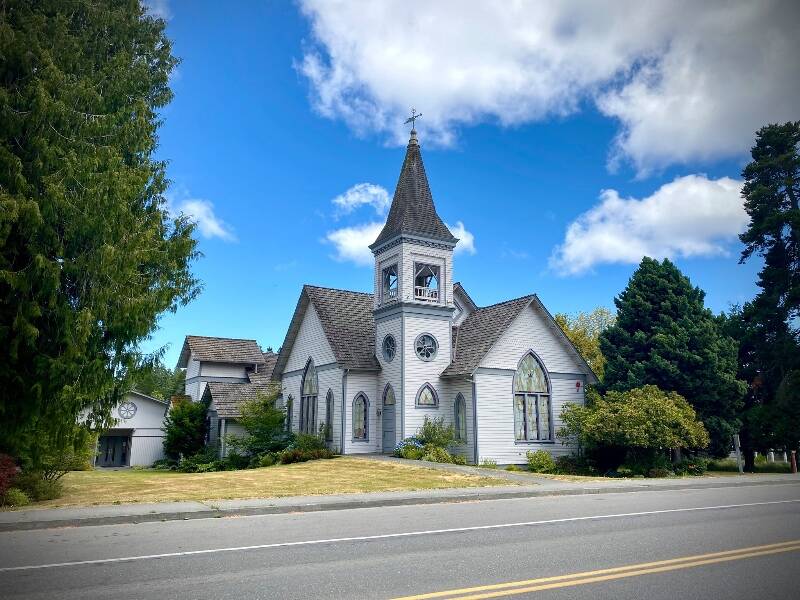On Sept. 27, the Washington State Department of Commerce announced $35.4 million in grants to local, state, and tribal governments and non-profits to plan and install solar and battery backup storage systems at community buildings.
The list of projects funded in King County included $129,704 to Vashon United Methodist Church “to help power emergency access for vulnerable populations.”
Eric Walker, chair of the church’s governing council, said in an interview the grant would be used to purchase and install solar panels and a large battery unit to power the church’s sanctuary building — making it possible to be used as a 24/7 emergency shelter in the event of a prolonged power outage.
The church is equipped with a kitchen and showers, where food could be prepared by those staying in the building during an emergency, he said.
Walker said that the church aims to coordinate with VashonBePrepared and Vashon Island Fire & Rescue to staff and support its solar-powered emergency center during times when it is needed.
Another organization that will be involved in the project is the Vashon Food Bank, he said. The Food Bank intends to buy the church’s education building, where some of the solar panels will be installed, within the next year.
Other panels will be installed on the church’s parsonage — but the power generated by the solar project will only be used in the church sanctuary.
The project is part of a larger “going green” effort being made by the church, intended to reduce energy consumption and promote conservation — including the replacement of its gas furnace with a heat pump to both cool and heat the building.
The United Methodist Church Pacific Northwest Conference has passed a resolution to reduce its carbon footprint by 50% by 2030.
Vashon Methodist’s plans reflect that goal, Walker said, adding that a local company, Artisan Electric, will oversee the installation of the solar project.
Other King County solar projects funded in the tranche of solar project grants by Commerce include:
- $100,000 to the City of Carnation for “Light Up Carnation”
- $99,500 to the City of Issaquah to identify Issaquah resilience hubs to ensure strong and prepared communities
- $96,500 to the City of Renton for the Renton Community Center
- $46,796 to Sno-Valley Senior Citizens for Sno-Valley Solar
- $500,000 to the City of Kent for the Kent Senior Center Solar plus Storage Project
- $1,500,000 to King County Facilities Management Division for Regional Communications and Emergency Coordination Center Solar + Storage
All the projects, according to the Dept. of Commerce, will provide clean backup power for critical community needs during power outages, including supporting emergency services, healthcare, and shelters.
Outside of power outages, the systems will produce clean electricity that will save energy costs for the facility operators, and the systems may also reduce strain on the grid when usage is high.
“Power outages impact everyone differently – some of our most vulnerable community members face significant risks when the power goes out,” said Commerce Director Mike Fong. “These investments in solar power with battery back-up systems will help people receive the services they need most — whether that’s heating or cooling, medical care, or keeping devices charged so they can communicate and stay informed.”
According to the Dept. Of Commerce, funding for solar and battery storage projects is an important element of Washington state’s climate leadership, including a commitment to a 100% clean electric grid free of carbon emissions by 2045.
“In addition to stewarding this state funding, Commerce is focused on maximizing every opportunity to capitalize on the historic amounts of federal clean energy funding currently available to states, including pursuing a state grant from the Environmental Protection Agency (EPA)’s $7-billion Solar for All initiative,” Fong said.
Some of the Solar Plus Storage grants announced will support planning and development work, such as feasibility studies, to prepare organizations to complete solar and battery storage projects in the future.
According to the Dept. Of Commerce, the selection process prioritized projects that will benefit populations most vulnerable to impacts from power outages and emergencies.
These communities include highly impacted, lower-income, rural, and remote communities.



